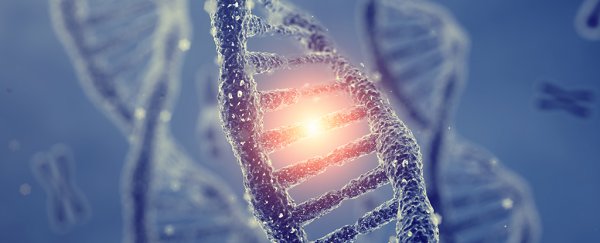We've seen how CRISPR/Cas9 can be used to tackle HIV and cancer, and now the revolutionary gene editing technique has Huntington's disease in its sights, as scientists have used it to reverse signs of the condition in mice.
That suggests CRISPR/Cas9 might one day be able to do the same in humans, so we can push Huntington's higher up the list of priorities for future research.
Huntington's disease is a fatal, inherited condition where brain cells die off due to a toxic protein released by a mutant version of the Huntingtin gene (mHTT). Symptom onset is typically in early middle age, making it a devastating illness at a time when victims are often parents of young children.
It's that mutant mHTT gene that CRISPR/Cas9 could fix, according to the researchers from Emory University.
The new approach could "efficiently and permanently eliminate" the poisoning of the brain that leads to Huntington's, the researchers write.
If you're completely new to CRISPR, or clustered regularly interspaced short palindromic repeats, it enables scientists to "cut and paste" DNA data with great accuracy. Cas9 refers to one particular way of using CRISPR that's currently being explored. Other recent research uses Cas3 to attack antibiotic-resistant superbugs.
Potentially, bad genetic code responsible for diseases could be cut out, and healthy genetic code could be pasted in instead. We haven't got that far yet in humans, but it's a goal researchers are working towards.
With mice engineered to have the same mutant Huntington's-causing gene as humans, the scientists used CRISPR/Cas9 to snip out the gene and remove the flow of the toxic protein that eventually leads to problems with motor control and mood swings.
After three weeks, almost all traces of the damaging protein had disappeared.
What's more, the treated mice showed "significant improvements" in their motor control, balance, and grip strength, though they didn't get back up to the same levels of mobility and dexterity shown by the control mice used in the experiments.
That suggests the nerve cells were able to heal themselves to some extent after the troublesome gene had been snipped out by CRISPR/Cas9.
The team says the technique would not have to be customised to each patient's genome, making it easier to apply, although they do stress that a lot more testing and research is required before we'll be sure this is healthy for humans to try.
Clinical trials are already underway for gene-silencing drugs that would block off the protein that causes Huntington's, but the advantage of CRISPR/Cas9 is that it could provide a one-time fix for the disease, with no further treatment required.
"Given that CRISPR/Cas9 can permanently eliminate the expression of targeted genes, using CRISPR/Cas9 should more efficiently deplete the expression of mHTT than has been possible with previous therapeutic approaches, which require continuous administration," the team says in its paper.
Neurodegenerative diseases in humans have not yet been tackled by CRISPR/Cas9, as the complexity and delicacy of the brain means any kind of tinkering could have catastrophic consequences.
Scientists want to be sure they're on the right track first, which is where this latest research can help, showing one approach that might be effective.
The research has been published in the Journal of Clinical Investigation.
